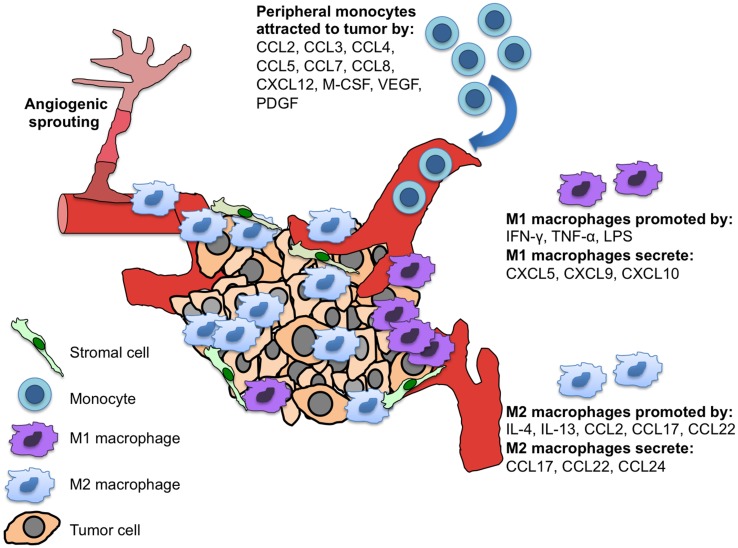M2 differentiation in cancer?
M1 and M2 differentiation in cancer Immunotherapy throws an immune response against cancer cells, after which the immune cells are able to kill cancer cells. "In doing so, it has been shown that the tumor often contains cells that can suppress the immune response. A number of factors play into this, and one of them involves a particular type of macrophages, the M2 macrophages." Tumors often contain a large number of M2 macrophages. Target various studies The researchers' goal is to change the M2 macrophages into M1 macrophages, which can correctly recognize and kill tumor cells. Should that fail, an alternative is for them to try to prevent M2 macrophages from housing in the tumor. Both M1 and M2 macrophages develop from M0 macrophages. Dampening inflammatory response What is the immunosuppressive effect of M2 macrophages based on? "M2 macrophages can inactivate T cells, but also play an important role in mechanisms that promote tumor growth such as angiogenesis, tumor cell invasion and metastasis," answers the tumor immunologist. Normally, M2 macrophages play an indispensable role in the complex of immune responses: they dampen the inflammatory response to prevent it from derailing. "But the tumor abuses M2 macrophages: it attracts them and deploys them for its own protection." To turn the M2 macrophages into M1 macrophages, which actually have a cytotoxic effect, we can take advantage of the fact that M1 and M2 macrophages differ in their metabolism. Specifically If the immune system is M2 differentiated then patients are often to a greater or lesser extent therapy resistant to both regular and non-regular cancer treatments. The issue is to adjust metabolism such that the immune system M1 is differentiated so that the macrophages again target the cancer cells.


